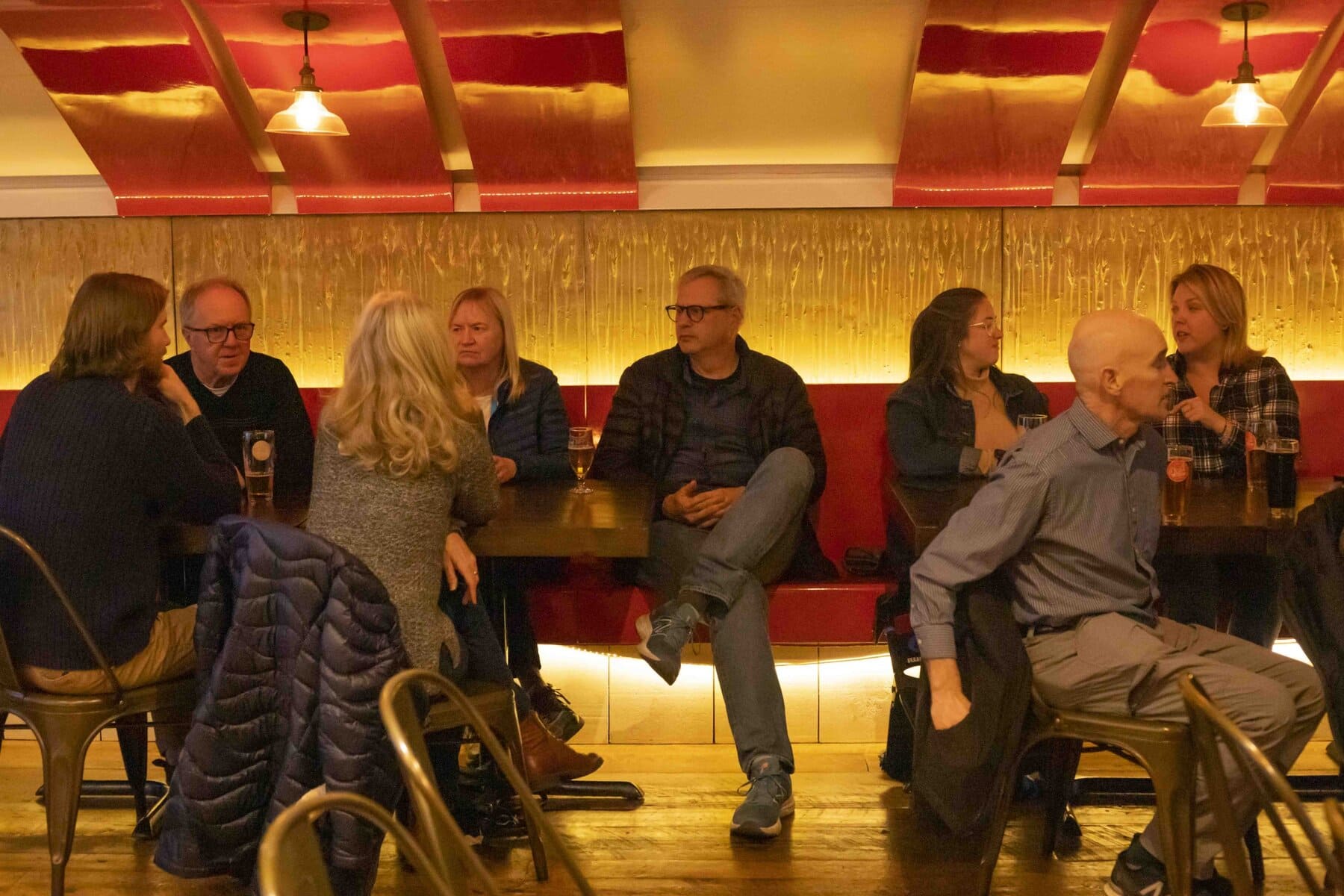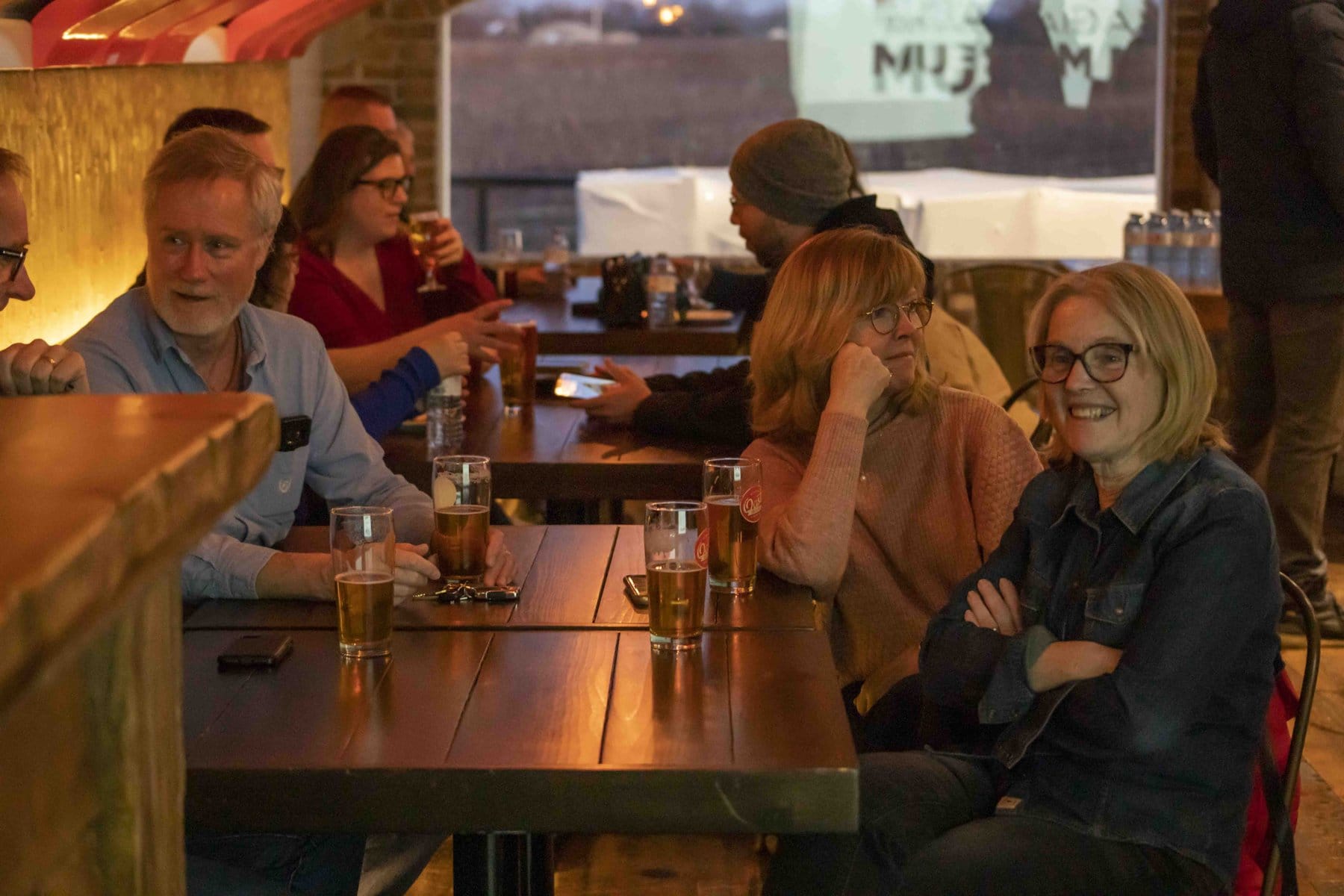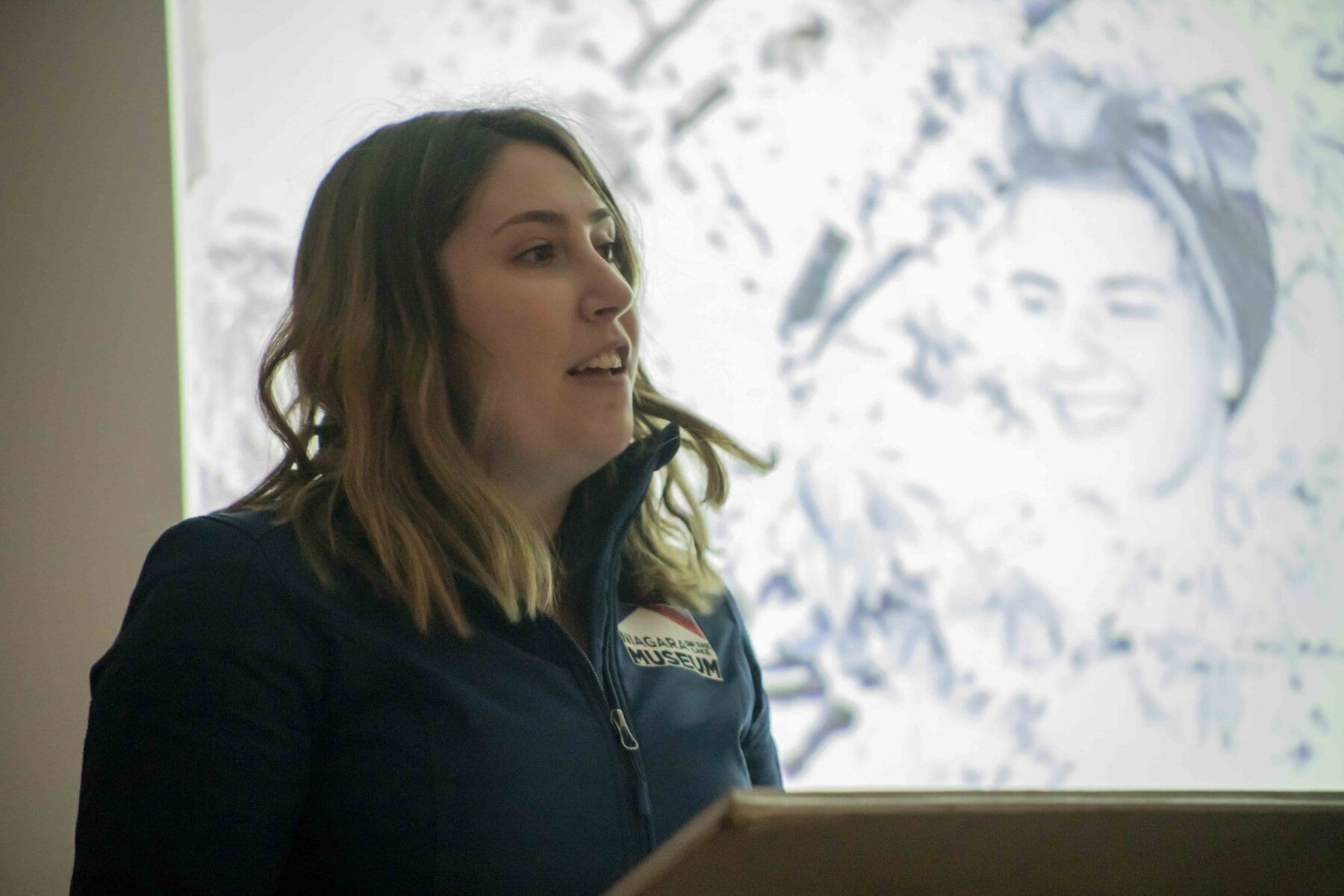A Niagara-on-the-Lake brewery is paying homage to the women who ran the family farms while the men were away during two world wars.
Oast released Farmerettes, the newest instalment in its Farmhouse Ale Collection, last week in conjunction with International Women’s Day.
The special batch, a fruity Saison-style beer with lots of head and a goldenrod colour, honours the women who were called farmerettes.
Senior brewer Aska Koabel wrote the recipe in November after Oast co-founder Cian MacNeill came up with the idea of crafting a special batch for women’s day.
Koabel said the beer gets most of its flavour from Niagara-grown tender fruit, including strawberries, cherries, apples and pears.
She wanted it to be a “nice looking beer” with a good amount of foam and “higher carbonation, like champagne.”
At a gathering last week for the release of the beer, Shawna Butts, assistant curator of the NOTL Museum, spoke about the history of the farmerettes.
“We don’t always reserve a spot in the history books for what’s going on on the homefront,” Butts told the audience.
The world wars called many men away from their homes and left behind a “vacuum” in the labour market.
“Women from all walks of life gave up their summers to pitch in and lend a hand on farms, and they became known as the farmerettes,” she said.
Farmerettes first came to Niagara on a government labour program in 1917.
Butts said there was some pushback from farmers who were reluctant to employ young, inexperienced women.
There were also objections from people who were not used to seeing women in pants.
“People couldn’t imagine women not wearing skirts while farming,” Butts said.
This elicited a few laughs from the audience.
“Due to the success of the program during the First World War, there was much less opposition when they were needed again during World War Two,” Butts said.
There were 2,400 farmerettes in the Niagara region alone, Butts said, and they worked on farms in modern-day St. Davids, Queenston and Virgil.
Farming in Niagara was an attractive summer job for women at the time.
“This job allowed them to earn their own money and achieve a sense of independence,” she said, adding, they “really helped crack the glass ceiling.”
“So, cheers to these farmerettes and to Oast for honouring them with this beer,” Butts said.
As Butts toasted, sisters Rosemary Finlayson and Charlotte MacDougall clinked glasses at their table.
The two were visiting with their partners from Mississauga.
Their mother, Jean MacDougall, worked at the Troup Family Farm in Jordan Station when she was about 15, said MacDougall.
“My mom talked about it all her life,” said MacDougall.
The former farmerette died last year at the age of 93 and left behind a treasure trove of stories for her children.
The sisters said their mother was given a puppy to take home with her to Sault Ste. Marie at the end of the program.
“She had so much fun being a farmerette,” Finlayson said.
“She loved the tomatoes and the peaches,” added MacDougall.
Her mother used to carry salt with her while picking in the fields so she could season the tomatoes as she tasted them.
“My grandparents were mortified when she came back in September because my mother had put on so much weight,” MacDougall said, bursting into laughter.
Asked where he got the idea to produce the special batch, MacNeill said he thought it was a “really neat story.”
“I’m surprised that I’ve never heard of that story before. It kind of reminded me a little bit about the ‘League of their Own,’ ” he said, referring to the 1992 film.
“I think all the ladies that really got behind this really appreciated it,” he said, adding that Oast would “absolutely” like to do it again next year.













